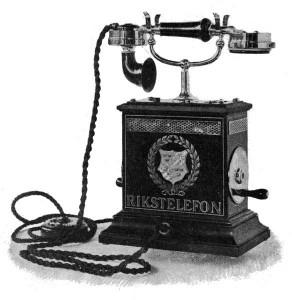♫ One ringy-dingy…two ringy-dingies…♫
Ernestine/Miss Tomlin (Lily Tomlin on Rowan and Martin’s Laugh-in).
How long should you wait before you return a telephone call? According to Debra J. Schmidt, Loyalty Leader:
“Returning phone calls used to be a common courtesy. Now, busy people claim they don’t have the time. I don’t buy that excuse. I’ve found that the most successful, busy people I know are the ones I can rely on to return my call the same day. It’s a matter of setting priorities.”
Indeed! What could be more important that meeting the expectations of those clients that have already sought your services and who are anxious to hear from you? These are precisely the people who have placed faith and trust in you in meeting their needs and solving their legal problems. What kind of message are you sending them if you fail to return their phone calls promptly?
Susan Dooley of the Dale Carnegie organization states that no response is a response. In fact, in failing to return a phone call promptly, rather than assuming you are busy with assembling the information to return their call (or you are away on vacation) the caller may assume something quite different:
[T]here’s a risk that the person feeling “snubbed” by the offender may draw a completely different, and inaccurate, conclusion, such as:
- This is not a top priority to you
- You’re not a professional
- You’re a procrastinator
- You don’t have the answer
- I’m not important to you
- You’re disorganized
- You can’t be counted on
- You’re hiding
- You have bad news, but are not strong enough to communicate it to me
Yikes! No professional would want to be labeled with these character attributes. Unfortunately, the wrong interpretation by the right person can harm business relationships and even careers.
No one would intentionally send these messages to their clients that are noted above. Yet by failing to return phone calls promptly, we are unintentionally sending these very negative messages…about ourselves and how responsible we are to our clients.
So what to do? There are a number of very good suggestions in these situations:
- The first thing is to recover your credibility. Acknowledge that the trust someone has placed in you has taken a hit. Your words and your actions have failed to align. It is easy to lose credibility and hard to regain it afterwards. You made an explicit or implicit promise to your clients to care about their matter. Failing to return their phone call has broken that promise. Start by apologizing. This is NOT an excuse. Don’t say: “I am sorry, but….” As soon as you say that word ‘but’ you have demolished any shred of credibility you had. Understand that you need to take ownership of the fact that you have disappointed your client and be real and honest to them. They are owed at least that much.
- Try to stop this from occurring in the first place by setting exceptions at the outset. If you are away from the office, on vacation, in court or on a personal matter, let your voice mail message shape the expectation of the caller as to when they can expect a call. If you have gone on an 180 day world tour, having your voice mail message state “Hi this is John Smith, I can’t take your call right now please leave a message” is completely different from “Hi this is John Smith. I am out of the office until March 2016. Please contact Jane Doe at extension 123 to discuss your matter or have this call answered by someone else at this office.”
- Ask yourself: “What kind of message do I want to leave with those who want to reach me?” If the answer to that is one of caring and commitment to their concerns, then you will implement policies such as having your assistant check your voice mail daily for messages and return your calls, if only to communicate that you are in trial and perhaps they could speak to someone else in your absence.
- Don’t wait to communicate bad news. Failing to contact people promptly when things don’t go as expected sends a very powerful message – along the lines that you are weak and don’t wish to face unpleasant facts and situations. Especially when things don’t go as expected is when clients will be looking to you as their source of strength to weather the setbacks. If you fail them now, you will fail them in the long term. Be their oak that stands up to the storm and let them know…in fair weather or foul ..that you will be there for them and be their source of strength.
Above all, when that telephone rings…land line or mobile…recognize that you have a golden opportunity. You can build your reputation and your client trust or destroy it, one ringy-dingy at a time.
(cross-posted to tips.slaw.ca)
This entry was posted on Thursday, September 3rd, 2015 at 5:00 am and is filed under 30 Questions for Busy Lawyers, Adding Value, Business Development, Issues facing Law Firms, Leadership and Strategic Planning, Technology, Tips, Trends. You can follow any responses to this entry through the RSS 2.0 feed. You can leave a response, or trackback from your own site.


















